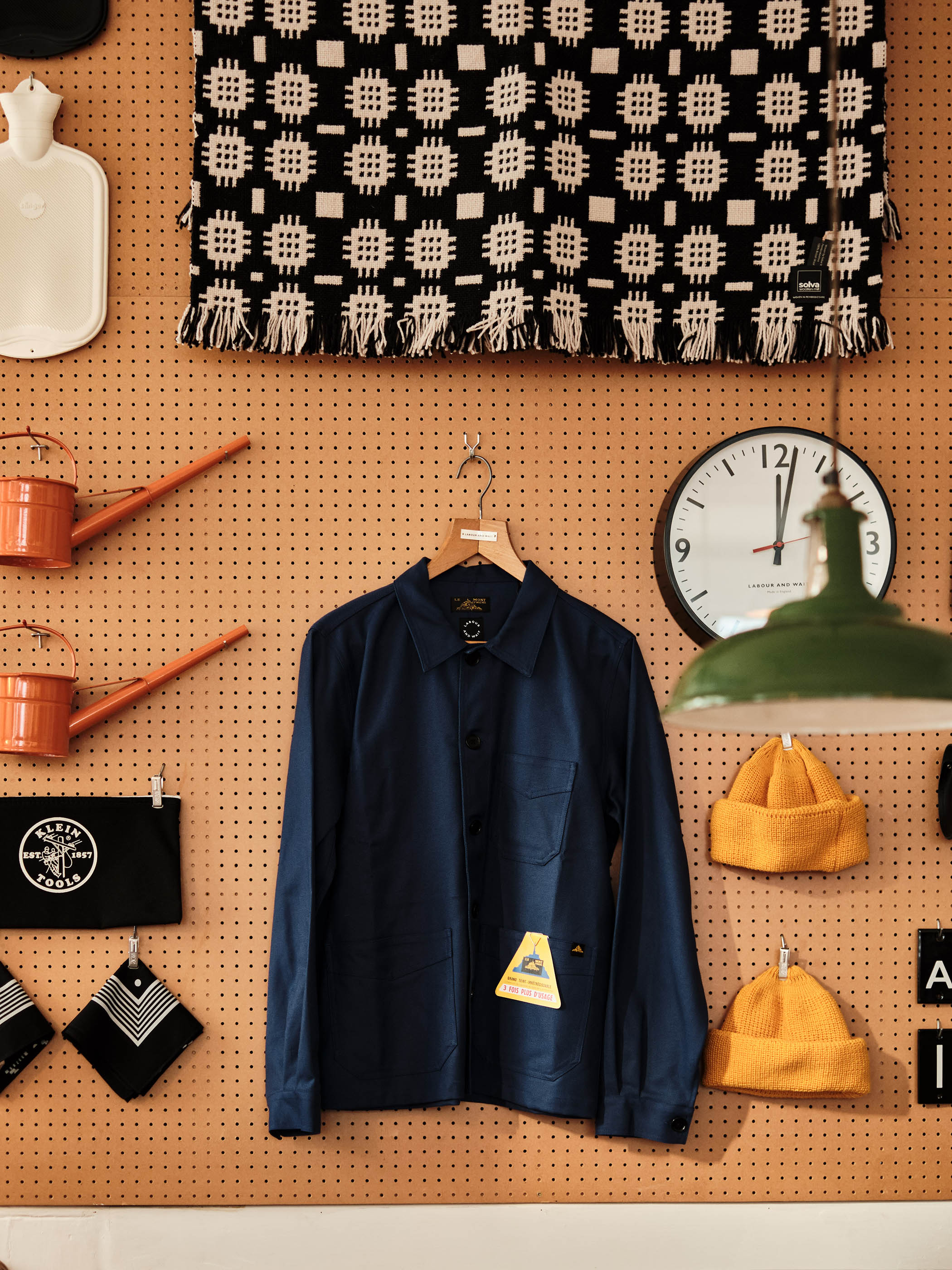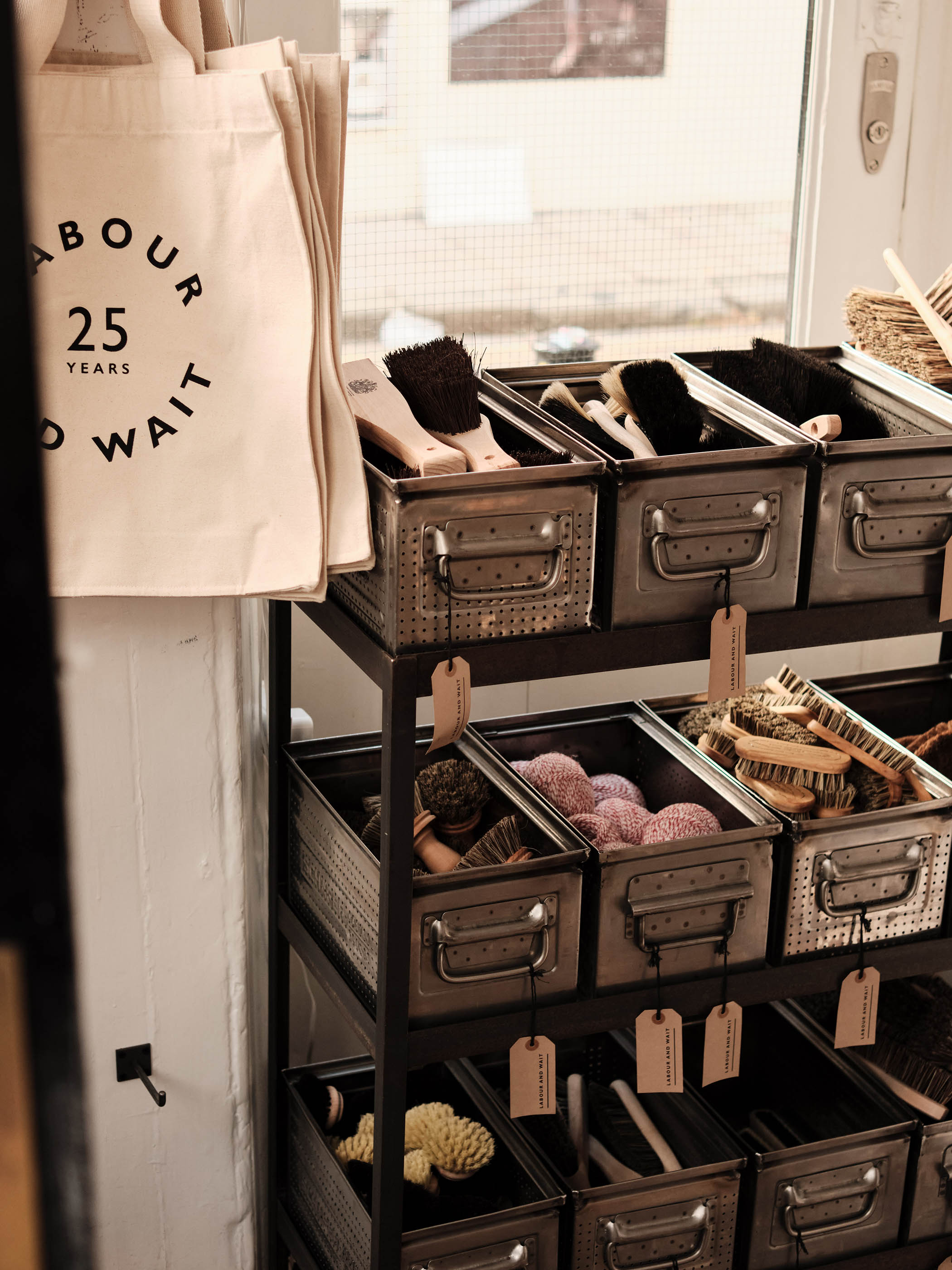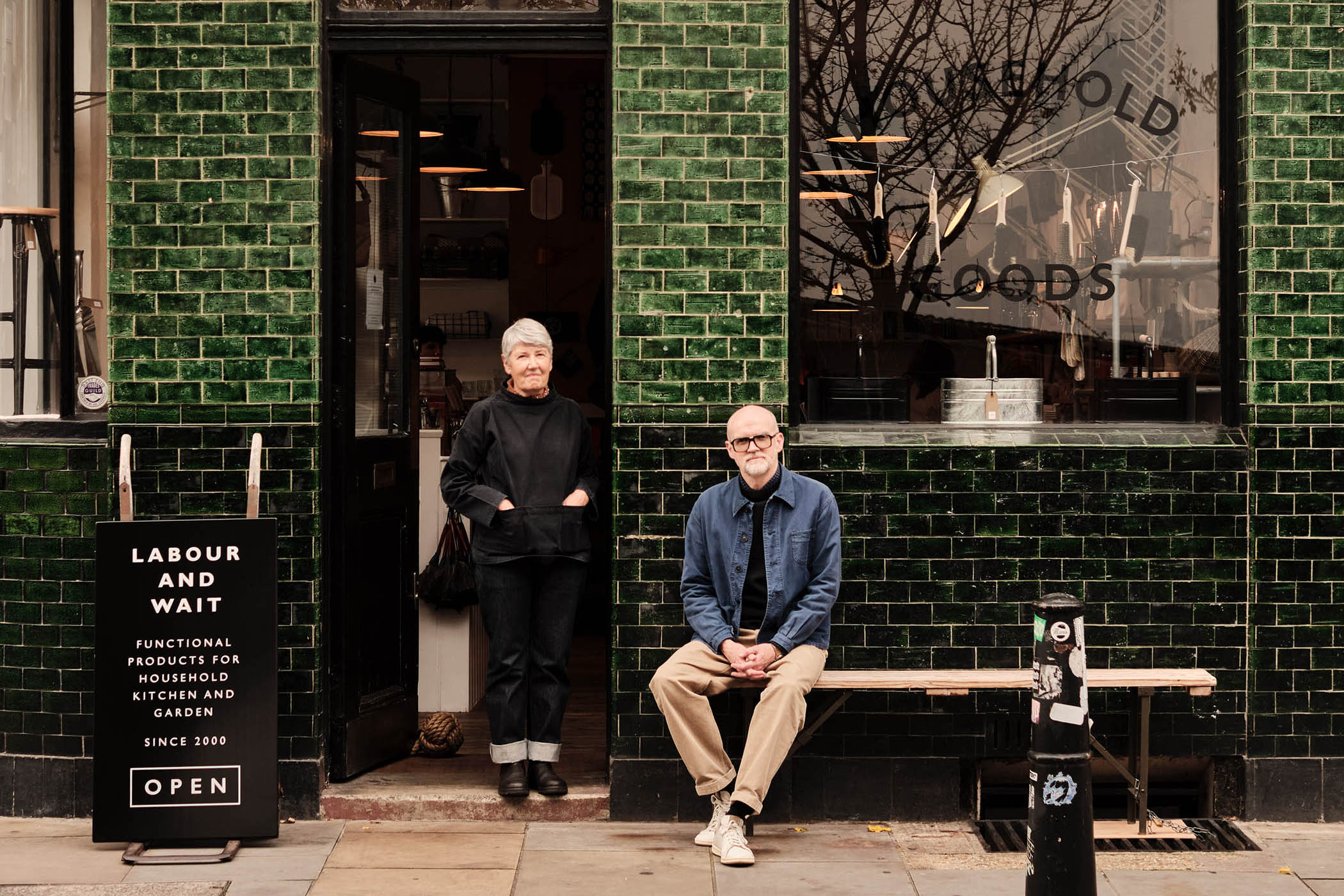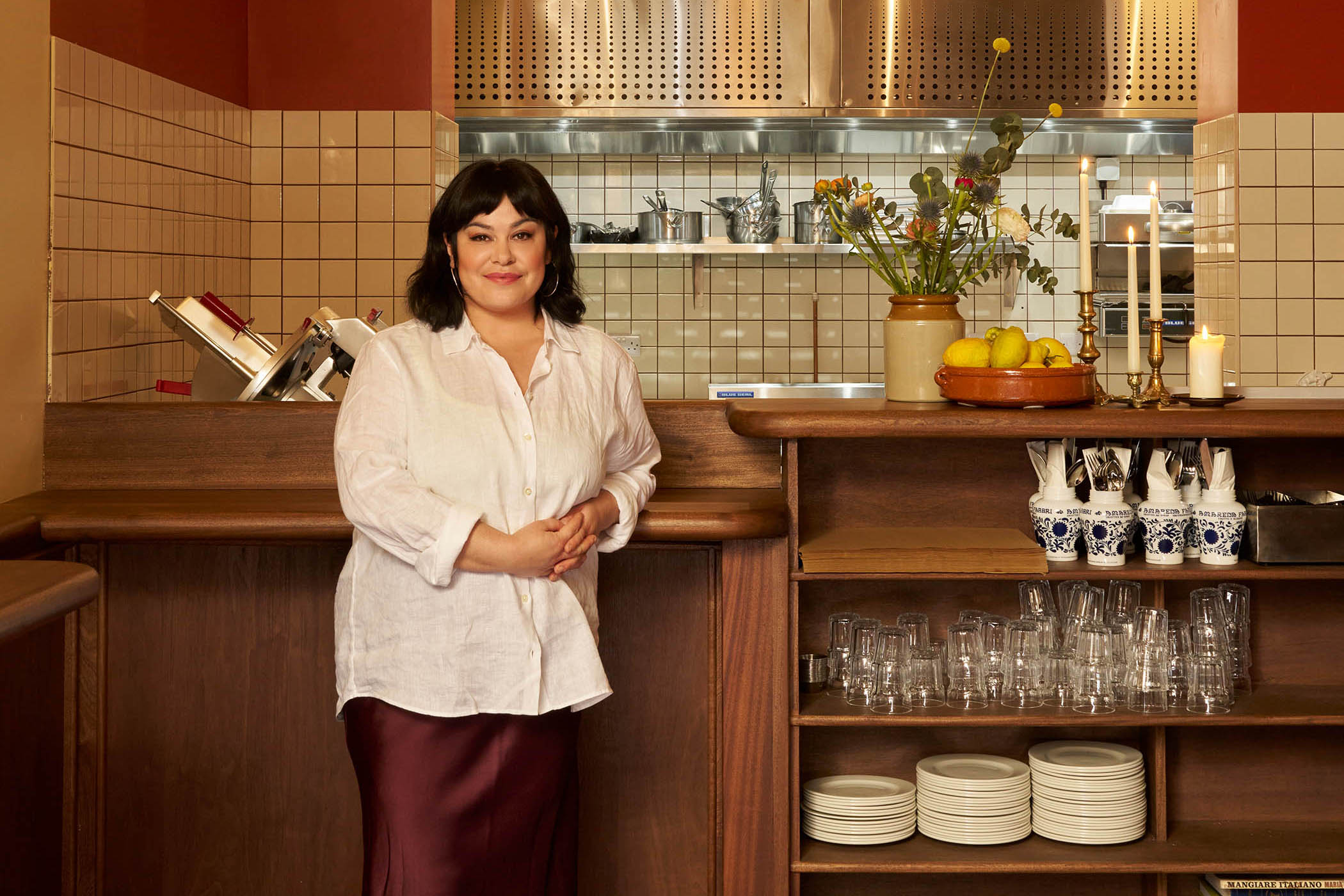Last year, I had a significant, ends-with-a-0 birthday, and my mother-in-law gave me a voucher for Labour and Wait. All involved knew this was a slam-dunk of a present: there are few better ways to treat yourself than with the company’s judiciously curated selection of household, kitchen, office and garden goods. I’ve bought a few items from Labour and Wait in the past, and they are invariably the objects that guests ask where I got them from (the enamel bread bin), or that spark a quiet joy when I use them (a German-made Bakelite pencil sharpener).
But what to buy now? There are bricks-and-mortar Labour and Wait stores: they have just opened a third store in London and have a concession on the top floor of Dover Street Market, as well as a shop in a converted garage in Tokyo. But one of life’s great pleasures is virtual window-shopping through their elegant website. Here, every piece is presented very straightforwardly on a slate-grey background. It should be boring, like scanning a mail-order catalogue from the 1980s. But it is somehow transporting.
You can spend hours – and I did – finding out about the last woman on Guernsey who makes willow baskets with a hemp rope strap (ponier à cou) to collect ormers, prized molluscs that are found in the Channel Islands and collected from January to April on a full or new moon. Had I ever heard of ormers? No. Did I need a handcrafted, scallop-shaped receptacle for harvesting them? Of course I didn’t. Months went by and I still hadn’t bought anything with my voucher. I was paralysed by the tales of artisanal splendour – an emotion the Germans must have a word for and which probably appears somewhere on the Labour and Wait website.

‘We think buyer’s remorse is awful’: a selection of their robust homewares
I explain my conundrum to Simon Watkins and Rachel Wythe-Moran, who founded Labour and Wait in east London 25 years ago, and they look on kindly.
“I don’t buy anything the first time I see it,” says Watkins, who is 60 and today wears a navy Guernsey sweater and leather boots that I’d bet he has had for a decade and resoled many times. “I look at it. I think about it. Do I really want that? Maybe I’ll go and look at it again. And we encourage that, really, because we like people to be happy with what they’ve bought. That buyer’s remorse thing, I think it’s awful.”
“We are never on the hard sell in our shops at all,” adds Wythe-Moran, 66, who is wearing a canvas fisherman’s smock, also navy. “Quite often you show a customer something and they’ll say, ‘I’m not sure…’ And you say, ‘Absolutely fine. We’ve always got it. So if you decide you want it, just come back.’”
Wythe-Moran mulls this over, like it is the first time she’s thought about it. “Which does seem a bit odd for a retailer.”
Watkins and Wythe-Moran are much like their products: considered and unshowy and seem to be very reliable. The clue to their retail philosophy has been in the name all along. “With a heart for any fate,” wrote the American poet Henry Wadsworth Longfellow in 1838. “Still achieving, still pursuing. Learn to labour and to wait” – an idea that if you are patient and persistent, you will prevail. Solid life advice, if somewhat saccharine, and also excellent qualities in a wooden toilet brush.
“We sell everyday products for doing something,” Watkins goes on. “They are practical things, not decorative things, but if they look great as well, even better. So yes, slowing down a bit, waiting for the results of your labours.”
‘We are always searching for timelessness. Well designed things that don’t shout’
‘We are always searching for timelessness. Well designed things that don’t shout’
The first Labour and Wait shop landed in 2000 on Cheshire Street in east London, once the site of a busy Sunday market, now most famous for its association with the Kray twins (who bought a pub there for their mum). Wythe-Moran and Watkins, who are business partners and not partner-partners, had met a couple of years before, introduced by friends who thought they’d get on. They both worked in men’s fashion and ended up as colleagues at M&S. At lunchtimes, disillusioned by the fast turnover of retail, they would plan their “escape”: a fantasy shop filled with classic, utilitarian products they loved: Duralex glasses, Brown Betty teapots, Breton striped shirts and buckets – really good buckets.
“And even things like nice string,” says Wythe-Moran.
“Very humble things,” Watkins nods.
“Yeah,” Wythe-Moran agrees. “Wooden pegs.”
Friends thought the idea was at best eccentric, at worst barmy. The internet was kicking off – why would anyone need a store that sold a hole punch, staplers, fountain pens? “People thought we were mad,” Watkins says. “They didn’t understand it, but I think when they saw it, they did. We soon realised that there were a lot of people who were searching for these things. It hit a nerve, didn’t it?”
A quarter-century on, we can agree that Labour and Wait tapped into something in the culture. In some ways, the store was a modern, stylised update of the kind of general store that you could have found in many British towns and villages for most of the last century. A teenage Wythe-Moran was a “Saturday girl” at the one in her tiny village in Norfolk.
“They used to have Dunlop wellingtons and winceyette pyjamas, knitting wool and haberdashery,” she recalls. “I just loved that odd mix. And the two brothers who ran it, they would say to any customers, ‘If we haven’t got it, we’ll get it for you!’”
There’s less plastic in a Labour and Wait store, but plenty of nods to traditional, Open All Hours mercantile shops, notably the brown canvas aprons that the staff has worn since 2001. “People kept asking us for them, so we decided to make them, and they’ve just been phenomenal,” says Wythe-Moran. “We’ve sold millions, literally, to restaurants and hotels, and artists and craftspeople.”
The Labour and Wait apron has, the founders politely note, been “often imitated”, but what’s perhaps more unexpected is a modest global boom in general stores: from Edinburgh Mercantile to Hark in Dublin, Best Made Co in the US to the Hub in Melbourne. “There are quite a few versions now, which there wasn’t before,” says Wythe-Moran, with neutral diplomacy. “But people do have a genuine affection for our shops. And that’s fantastic. What more could we want really?”

‘Quietly in the background’: Labour and Wait is known for well-made household products that last, such as wooden brushes, watering-cans, and enamel milk jugs
Labour and Wait has grown consistently but also slowly, cautiously. In 2010, they moved from the first premises to a bigger shop round the corner, a green-tiled converted Victorian pub on Redchurch Street in Shoreditch. The Tokyo shop followed in 2017, then a second London store in Marylebone in 2021. Now, this month, a third UK outpost opens in Covent Garden. “We didn’t really want it to suddenly become big and expand everywhere,” explains Wythe-Moran, then smiles. “We don’t do things in a hurry.”
The new store, on Dryden Street, follows the Labour and Wait template in most ways. It’s a distinctive building, an old non-conformist chapel that became a seed merchants in the 1920s. It’s on a small street, a couple back from the main drag. “In the middle of busy, busy Covent Garden would have been too much for us,” Watkins says. “We always quite like to be a bit off the radar.” But – at 1,500 sq ft – it is roughly three times bigger than previous stores. They won’t be tinkering with the formula too much, but the extra space does allow Watkins and Wythe-Moran to introduce some new products: larger garden tools, for example, spades and forks from a Dutch company they like.
But if 25 years in the game has taught them anything, it’s to avoid messing with things that work. “We have always been very focused and we’ve never wavered,” says Wythe-Moran. “We’ve seen in the past where people have set up similar sort of things, and they’ve gone off on a tangent. We’ve stuck to our guns, haven’t we?”
“Yes,” says Watkins. “We really know what Labour and Wait is.”
And what is that? The essence, they believe – and Watkins and Wythe-Moran really do seem to agree on almost every aspect of the business – is product selection. A lot of people call what they sell “retro” or “nostalgic”, but they prefer another word: “We are always searching for timelessness,” says Watkins. “They’re not things that shout. They are well-designed, maybe a pleasure to use, but they’re quietly in the background, doing their thing and not impinging, if that makes sense.”
It is this quality that has seen Labour and Wait ride out recessions, come through Brexit and survive and even thrive in the Covid pandemic. “We’ve done OK,” says Watkins. “People could justify buying something from Labour and Wait because they felt it was quality and it’s not something that they’re going to be throwing away anytime soon.”
With my birthday voucher, I eventually narrowed it down to three products: a bread knife made by a third-generation French family; a cheese slicer, invented in 1925 by a Norwegian cabinet maker; and a food flask from Stanley, an iconic design from 1913. But beyond that, I found it impossible to decide, so I bought them all. Call it a midlife crisis, or unchecked consumerism, but when they arrived through the post, wrapped in simple, smart packaging, I knew I’d made a wise call.
Newsletters
Choose the newsletters you want to receive
View more
For information about how The Observer protects your data, read our Privacy Policy



